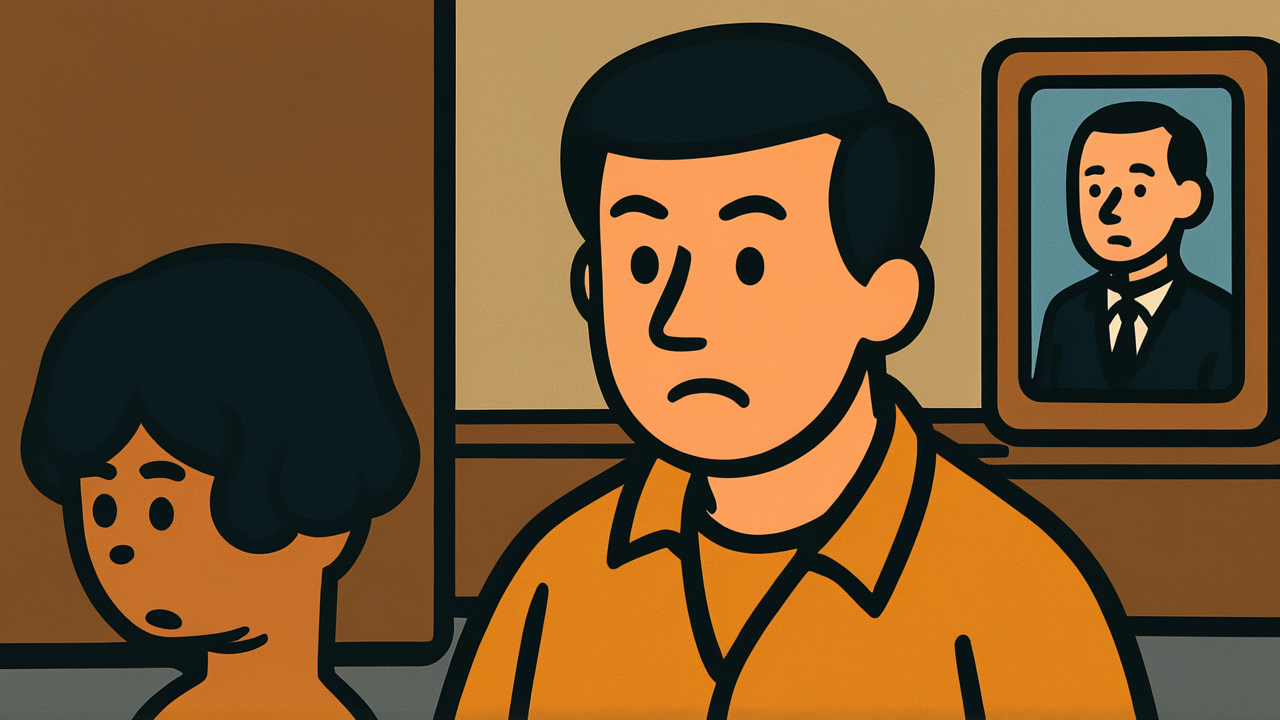How to Read “大智は愚の如し”
Daichi wa gu no gotoshi
Meaning of “大智は愚の如し”
“Great wisdom is like foolishness” means that truly wise people do not show off their knowledge and appear simple and humble, as if they were foolish at first glance.
The more people possess true wisdom, the more they understand the limits of their knowledge and the profundity of the world, so they do not rashly make definitive statements or boast about their knowledge. Rather, they maintain a humble attitude of “there are still many things I don’t know.”
This proverb is used to admonish people who show off their knowledge and become conceited, or to express that true wise people can be found among those who appear plain and inconspicuous. It is also used to praise the attitude of real experts who can explain difficult things in an easy-to-understand way and politely answer even amateur-like questions. Even today, people who quietly continue learning often possess deeper knowledge than those who show off their knowledge on social media.
Origin and Etymology
“Great wisdom is like foolishness” is a proverb that originates from ancient Chinese thought. It is deeply related to the philosophy found in Laozi’s “Tao Te Ching,” and the expression “great wisdom appears foolish” is considered the prototype.
In Laozi’s philosophy, those who possess true wisdom do not wield their knowledge carelessly due to their deep understanding, but rather maintain a humble and simple attitude. This connects with Laozi’s fundamental philosophy of “wu wei” (non-action and naturalness). The idea is that as wisdom deepens, one comes to know the complexity of the world and one’s own ignorance, naturally becoming modest.
Chinese classical thought was introduced to Japan along with Buddhism, and this concept began appearing in literature from the Heian period onward. During the Edo period, with the spread of Confucianism, it is believed to have become widely known, particularly among the samurai class.
While the character “foolish” simply means “stupid” in modern times, in classical usage it also contained positive meanings such as “simple and unpretentious.” This subtle difference in meaning creates the profound flavor of the proverb.
Usage Examples
- That professor is a world authority, yet he is polite even to students’ questions—truly “Great wisdom is like foolishness”
- Rather than people who show off their expertise on social media, I think he who silently continues his research embodies “Great wisdom is like foolishness” and is the real deal
Modern Interpretation
In today’s information society, the value of “Great wisdom is like foolishness” stands out even more prominently. With the spread of social media and the internet, anyone can easily disseminate information, making the difference between those who show off knowledge and true wise people increasingly clear.
While many people discuss specialized knowledge on Twitter and YouTube, real experts tend to honestly admit “what I don’t know, I don’t know” and avoid making simple judgments about complex problems. On the other hand, people who act as if they know everything with just a little knowledge also stand out.
The development of AI technology also provides an interesting perspective. AI like ChatGPT possesses vast knowledge while showing a humble attitude by saying “I may make mistakes.” While this is intentionally programmed humility, it could be said to suggest the true nature of wisdom.
In modern times, the ability to discern the truth of information has become more important. We need to listen more carefully to the opinions of those who maintain cautious and humble attitudes, rather than those who are loud or speak definitively. “Great wisdom is like foolishness” holds important meaning as a guideline for identifying true wise people, precisely because we live in an age of information overload.
When AI Hears This
Early AI systems had a problem of confidently outputting wrong answers instead of saying “I don’t know.” This perfectly embodies the phenomenon where “shallow knowledge breeds overconfidence.” However, the latest AI systems increasingly use expressions like “this question is complex with multiple perspectives” or “I’m not certain, but…”
This shift represents a paradox discovered by AI developers in their pursuit of “what true intelligence really means.” Early versions of GPT favored definitive answers, but as they became more sophisticated, they began expressing uncertainty and acknowledging their limitations. This is a perfect embodiment of “great wisdom appears foolish.”
What’s even more fascinating is that human experts follow the same pattern. Medical students tend to diagnose diseases too readily, while experienced doctors are more cautious, saying “we need more tests.” Many Nobel Prize winners emphasize “how much we don’t know” for the same reason.
Modern AI research is technically proving that the essence of intelligence lies not in accumulating information, but in awareness of our ignorance. The phenomenon where the smartest AI gives the most humble responses is a recreation through data and algorithms of the truth that ancient sages understood intuitively.
Lessons for Today
“Great wisdom is like foolishness” teaches modern people that true growth is not about accumulating knowledge, but about deepening humility.
Precisely because we live in an era where people tend to show off knowledge to collect “likes” on social media or use difficult words to appear smart in meetings, this proverb’s teaching resonates in our hearts. Truly excellent people are those who can explain things clearly from the other person’s perspective and can honestly say “please teach me.”
You probably have experience with this too. Aren’t the truly reliable seniors and supervisors those who don’t act superior and never forget their learning attitude? Because they know the limits of their knowledge, they continue learning from others and consequently achieve further growth.
In modern society, wisdom is more valued than knowledge, and insight more than information. By maintaining the humble feeling that “there are still many things I don’t know,” your appeal as a human being will increase, and trust from those around you will deepen. True wisdom is the attitude of continuous learning itself.



Comments